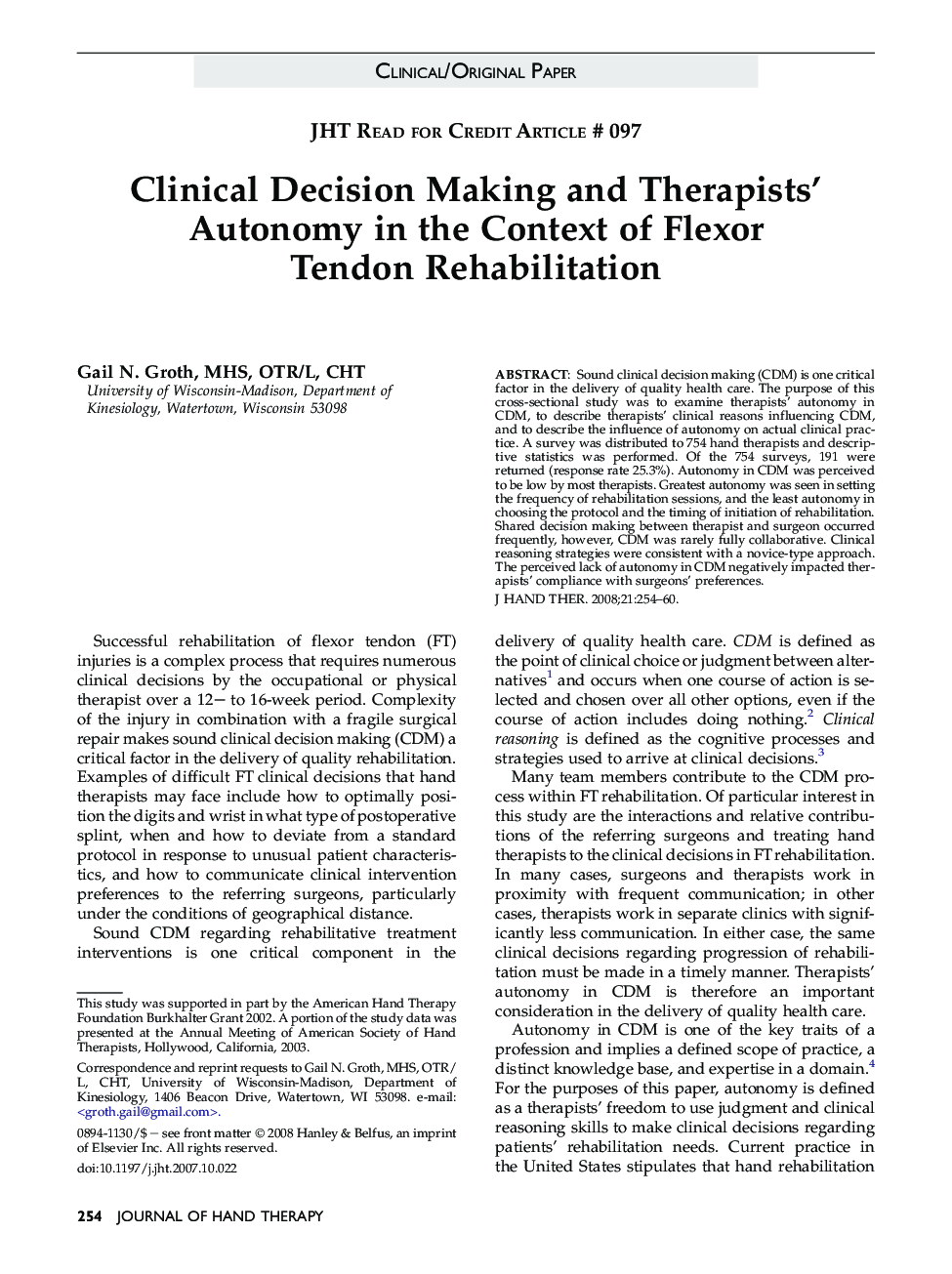| Article ID | Journal | Published Year | Pages | File Type |
|---|---|---|---|---|
| 2695035 | Journal of Hand Therapy | 2008 | 7 Pages |
Sound clinical decision making (CDM) is one critical factor in the delivery of quality health care. The purpose of this cross-sectional study was to examine therapists' autonomy in CDM, to describe therapists' clinical reasons influencing CDM, and to describe the influence of autonomy on actual clinical practice. A survey was distributed to 754 hand therapists and descriptive statistics was performed. Of the 754 surveys, 191 were returned (response rate 25.3%). Autonomy in CDM was perceived to be low by most therapists. Greatest autonomy was seen in setting the frequency of rehabilitation sessions, and the least autonomy in choosing the protocol and the timing of initiation of rehabilitation. Shared decision making between therapist and surgeon occurred frequently, however, CDM was rarely fully collaborative. Clinical reasoning strategies were consistent with a novice-type approach. The perceived lack of autonomy in CDM negatively impacted therapists' compliance with surgeons' preferences.
